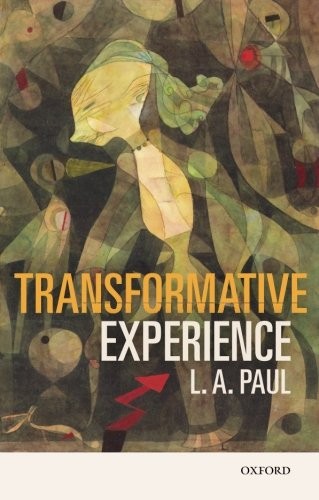Karsten W. reviewed Transformative Experience by L. A. Paul
Review of 'Transformative Experience' on 'Goodreads'
5 stars
There are decisions that we cannot make through reason. These are, for example, decisions that change us in such a way that we cannot imagine the situation after the decision. Should I have a child? Should I join the church? Or, to quote an example from a book I recently finished: Should I accept the inheritance or not? L.A. Paul speaks of transformative experiences and sheds light on the problems that a rational, reason-based approach entails:
1. Is the information available on the consequences of the decision applicable to me?
2. Problems of merging information: "There might be a mistake in trying to reduce the richness and quality and character of human experience to numbers".
3. Diachronic decision-making: "Which self matters: the self making the decision, or the self that would result?"
It's about the value of first-hand experience. There is a difference between getting explained what "red" is and …
There are decisions that we cannot make through reason. These are, for example, decisions that change us in such a way that we cannot imagine the situation after the decision. Should I have a child? Should I join the church? Or, to quote an example from a book I recently finished: Should I accept the inheritance or not? L.A. Paul speaks of transformative experiences and sheds light on the problems that a rational, reason-based approach entails:
1. Is the information available on the consequences of the decision applicable to me?
2. Problems of merging information: "There might be a mistake in trying to reduce the richness and quality and character of human experience to numbers".
3. Diachronic decision-making: "Which self matters: the self making the decision, or the self that would result?"
It's about the value of first-hand experience. There is a difference between getting explained what "red" is and seeing red. It is worth pursuing this value of self-made experiences and not relying or not relying solely on the views of others. "There's a role for first-person experience for evaluating quality of life".
The book by L.A. Paul is for me an example where reason shows limits to reason. "I want us to recognize what we can do and what we can't do. What we can know, and what we can't know. Not set ourselves impossible tasks. So, take a stance involving epistemic humility; and then, from that stance, look at what kinds of decision models we might be able to build". I like that. Other examples for me are Karl Popper on truth and Noam Chomsky on the limits of knowledge that follow from language.
Actually, I didn't read the book at all, but heard an interview (www.econtalk.org/l-a-paul-on-vampires-life-choices-and-transformation/) about the book. From her voice, the author seems to have found peace in reason. I am not planning to read this book, but am waiting for her next book, "Transformative Religious Experience and the Paradox of Empathy", expected 2021.

